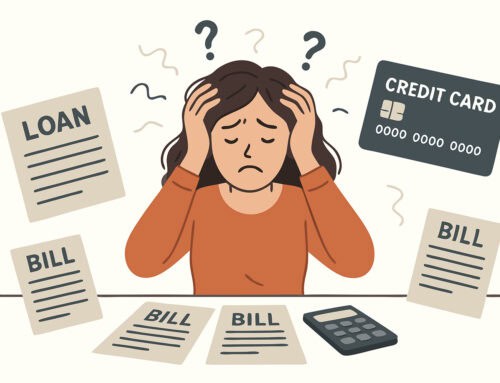How Does Filing for Bankruptcy Affect My Spouse?
Bankruptcy laws vary from state to state, as do the pros and cons that go along with them. In California, one spouse can file bankruptcy, which can be beneficial. There are several factors to consider when deciding whether to file individually or jointly for bankruptcy in California. Here are several things to factor in when making your decision.
1. Community Property’s Impact on Bankruptcy Estate Assets
In a common-law state that allows individual bankruptcy filings for married people, fewer assets are included in the bankruptcy estate. Only the assets included in the bankruptcy estate are protected by bankruptcy law. However, California is a community property state, which means that property acquired during the marriage (in the absence of a prenuptial agreement or some other contract) typically belongs to both spouses. This is true no matter whose name is on the title of the property. Thus, more property is protected from creditors in a bankruptcy filing than may occur otherwise, even if only one spouse files.
Some property may be considered separate and belonging exclusively to your spouse. If this is the case, it can also be considered separate from the bankruptcy filing. Titles, values, and allowable exemptions include three characteristics that may play a role in asset classification. Because this can be a nuanced area, it is important to get advice from a legal expert — particularly a bankruptcy attorney.
2. The Impact on Credit Reports and Dischargeable Debts
Sometimes spouses’ credit scores vary greatly, and some even contain numerous errors. When one spouse’s credit is substantially higher than the other’s, it may be worthwhile to preserve the positive credit score whenever possible. California mostly allows you to do this when you file individual bankruptcy without your spouse. As a general result, only one spouse’s credit score is negatively impacted by personal bankruptcy, which is the filer.
In addition to the non-filing spouse’s credit report being protected, some joint debts could also be discharged along with those of the individual filing bankruptcy. Community property included in the bankruptcy filing is often protected from creditors, as well. However, if the non-filing spouse is a guarantor or personally liable for a shared debt, creditors may pursue them for property not identified as community property. Further, it would be best if you remained married during bankruptcy. Creditors will pursue the non-filing spouse in the event of divorce or death of the filing spouse.
3. The Non-Filing Spouse’s Income Can Impact Filing
It’s not uncommon for one spouse to have both a higher credit score and more income. On the bright side, preserving the positive credit score of one spouse can be beneficial. The potential downside, however, is if that spouse produces significant income. Often, courts will include the non-filing spouse’s income in household income, which determines Chapter 7 eligibility. Substantial income compared to debt may make you ineligible for filing for Chapter 7 bankruptcy.
4. Marital Impact on Allowable Bankruptcy Exemptions
California allows exemptions on a property up to certain thresholds depending on various factors. For example, a married individual typically has a much larger exemption on a home property than they would be if they were single. The more exemptions you are allowed, the more your assets are protected from creditors. However, a specific property may not be exempted unless you file jointly.
You basically have two options for claiming exemptions, and these options relate to joint versus individual filing. It is wise to consult with a bankruptcy attorney to understand your allowable exemptions and how your bankruptcy filing impacts the exemptions. After reviewing your options with an attorney, you will be better equipped to determine which course of action is right for you and your spouse.
Options Provide Opportunity
As you have learned, many variables impact your decision to file bankruptcy individually or jointly when you’re married. These often include:
- Community Property
- Credit Scores
- Dischargeable Debt
- Your Spouse’s Income
- Miscellaneous Factors
Options can seem overwhelming, but they also provide an opportunity to determine your best course of action to make a fresh start. Don’t feel overwhelmed. Talk to a bankruptcy attorney at Brent George Law to explore your options. Take the next step toward financial recovery.
Disclaimer: This article is intended for informational purposes only and does not constitute legal advice. For personalized assistance, please contact our office at (805)494-8400.





